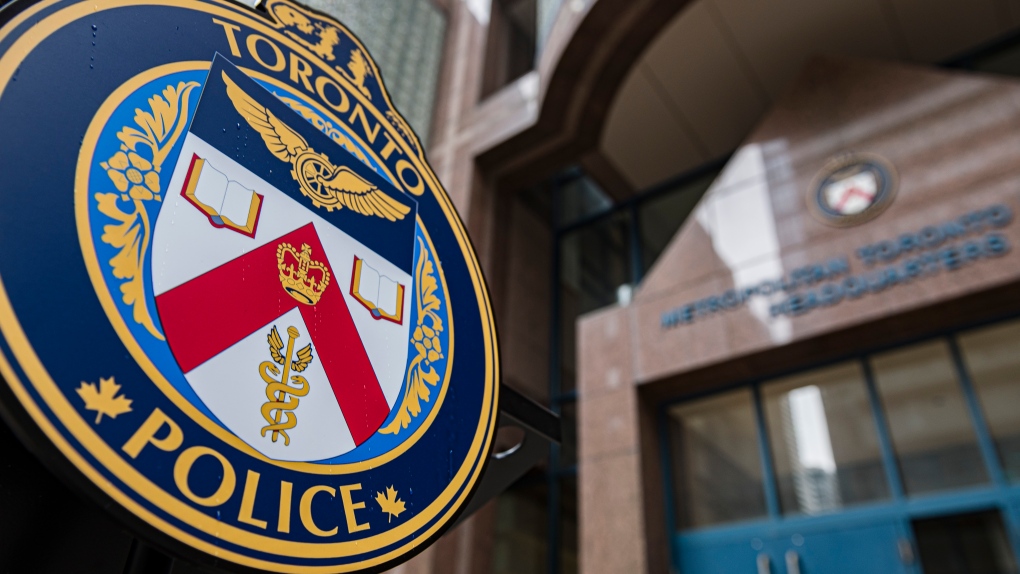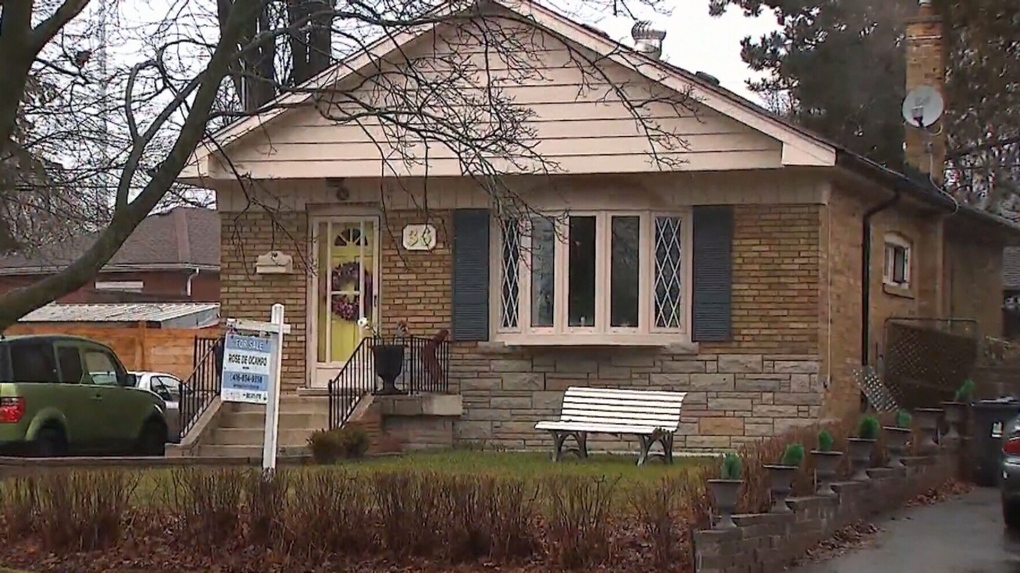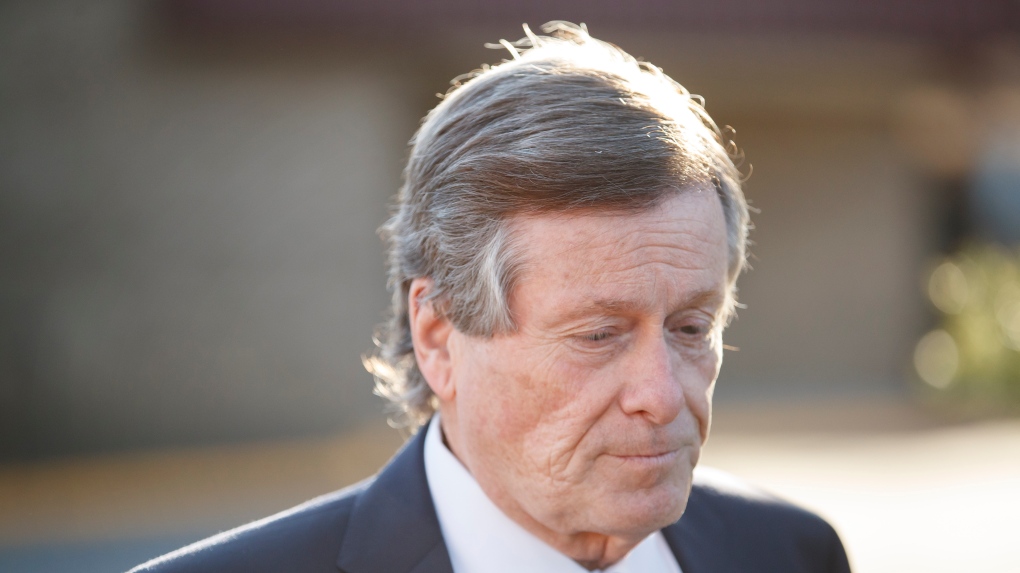5 things to know as council debates Toronto's budget amid Tory fallout
Toronto City Council will debate the city’s budget today, just days after Mayor John Tory threw a grenade into the city’s politics with a shocking announcement that he plans to resign in the wake of an affair with a staffer.
Councillors are grappling with one of the most fiscally challenging environments the city has faced in years. Just the higher costs of borrowing, gas and food are together expected to cost Toronto more than $100 million extra this year.
At the same time, the city continues to deal with fiscal fallout from COVID-19 and to wait on large funding commitments from other levels of government.
Even with the largest property tax increase in more than 20 years, the city is staring down some potentially tough decisions as it considers the $16.16 billion tax and rate supported operating budget and the $49.26 billion 10-year tax and rate supported capital budge.
Here are five things to know as council considers the budget.
IT COULD BE ROWDY
Wednesday’s council meeting was expected to be a fairly routine special meeting of council to essentially rubberstamp the latest budget put together by Mayor John Tory. But it could be a much more theatrical affair in the wake of Tory's Friday announcement.
Some current and former members of council loudly celebrated the mayor’s announced departure as an opportunity to tear up his budget and replace it with a more progressive vision for the city.
But while it initially sounded like the mayor would resign immediately, he has since said that he will remain on in order to see through the budget process.
While some think that Tory’s announcement should be an opportunity to reduce the police budget or re-examine the plan to rebuild the eastern part of the Gardiner Expressway, the fact remains that his ideas for Toronto overwhelmingly won at the ballot box just a few months ago.
While he has said that he will step down in order to focus on his family, the mayor has given no indication that he thinks the plan laid out in the budget should be rewritten.
Some of the mayor’s allies have in fact asked him to reconsider his resignation so that council is not thrown into disarray. One poll released this week shows that Torontonians are split on the question of whether he should stay or resign over the scandal.
Whatever the case, tensions will likely be high at a meeting where some councillors are hoping the mayor will reconsider his resignation and others are annoyed that they are not already setting a date for a byelection to replace him.
THE CITY IS STARING DOWN A MASSIVE SHORTFALL
While life has returned to normal in many ways, Toronto has still not recovered financially from the COVID-19 pandemic. The city’s revenue losses associated with the impact of the pandemic are expected to be $933 million this year alone. That’s the equivalent of a 24 per cent property tax increase.
The city is required by provincial law to balance its operating and capital budgets each year, but it is doing so based on the expectation of $1.56 billion in funding commitments from the federal and provincial governments for 2022 and 2023.
According to a budget presentation from the city manager and chief financial officer, “without federal and provincial funding support, there will be profound, material and sustained impacts” on capital spending, economic recovery and job growth which would be felt as soon as this year.
“Impacts will be immediate in 2023 and continue into future years,” the report warned. That would mean service cuts and putting important capital projects on hold.
Toronto already has a nearly-$10 billion backlog in state-of-good-repair work.
The city is also still waiting to hear how reduced development charges will be recouped. The Ontario housing plan axed around $200 million from the charges that the city normally takes in from developers annually. Premier Doug Ford has said that the city will be made “whole” and this year’s municipal budget relies on that promise as well. But Ontario still has not said exactly how it will do that.
THERE’S MORE MONEY FOR POLICE AND SECURITY
The single largest line item in the city budget is getting a little bigger. The Toronto Police Service is getting $48.3 million more this year, bringing its net budget after revenues to more than $1.16 billion.
The city has said it is increasing the police budget in order to hire 200 more officers, particularly for priority response units.
 The Toronto Police Services emblem is photographed during a press conference at TPS headquarters, in Toronto on Tuesday, May 17, 2022. THE CANADIAN PRESS/Christopher Katsarov
The Toronto Police Services emblem is photographed during a press conference at TPS headquarters, in Toronto on Tuesday, May 17, 2022. THE CANADIAN PRESS/Christopher Katsarov
But the move comes as some activists, responding to high-profile cases of police violence, urge cities to spend less on policing and more on community programs that target the roots of crime.
Tory has said the city is doing both and that he hears few calls from ordinary citizens in disadvantaged neighbourhoods for police to have fewer resources. But in the wake of his resignation announcement, some councillors have called for the issues to be re-examined.
The boost to police funding also comes as the TTC deals with a rash of violence at its stations and vehicles.
Though funding for the move was not part of the budget, the force recently said it would dispatch 80 officers to help patrol the system daily.
The TTC is also slated to get $53 million more, in part to 50 more special constables.
BUDGET INCLUDES BIGGEST TAX INCREASE SINCE AMALGAMATION
Facing a slew of budgetary pressures and the highest inflation in years, the budget proposes a 5.5 per cent hike to property taxes. That comes in addition to a previously approved 15 per cent increase to the city-building fund.
For the average homeowner, the move will cost an additional $183 a year.
Even with the combined seven per cent bump for residents, the city’s revenue will not be adequate without help from other levels of government.

The city has also implemented a new vacant property tax, which is intended mainly to deter owners from leaving investment properties vacant.
Council recently voted to explore new revenue tools, including a possible parking levy.
FIRST BUDGET WHERE MAYOR WILL BE ABLE TO VETO AMENDMENTS
 Toronto Mayor John Tory to seek third term as Toronto mayor. THE CANADIAN PRESS/Cole Burston
Toronto Mayor John Tory to seek third term as Toronto mayor. THE CANADIAN PRESS/Cole Burston
As part of the ‘strong mayor’ powers granted to the mayors of Toronto and Ottawa by the PC government at Queen’s Park, the mayor now has the ability to veto any amendments to the budget made by council within 10 days.
Council can override a mayoral veto, but would require a two thirds majority.
John Tory has already used the new powers multiple times.
Given that some councillors would like to redo the budget in the wake of Tory's bombshell resignation announcement, he may well need to use his veto if he wants his plan to pass.
But any use of it will likely be even more contentious given that he has already said he will step down.
If Tory had stepped down ahead of the budget meeting, Deputy Mayor Jennifer McKelvie would not have wielded strong mayor powers, including the veto.
CTVNews.ca Top Stories

DEVELOPING Hurricane Milton strengthens into a Category 5 storm. Florida orders evacuations
Hurricane Milton strengthens into a Category 5 storm off Mexico and threatens Florida, forecasters say.
'Selfish billionaire': Chip Wilson's mansion vandalized after political sign erected outside
Days after a political sign was erected outside Chip Wilson's Vancouver mansion, the waterfront property has been vandalized with graffiti.
BREAKING Cissy Houston, Whitney Houston's mother and a Grammy-winning singer, dies at 91
Cissy Houston, the mother of the late Whitney Houston and a two-time Grammy winner who performed alongside superstar musicians like Elvis Presley, and Aretha Franklin, has died. She was 91.
Two people injured in apparent road rage incident, shooting in Toronto
Two people are in hospital after they were chased and shot at in what appears to be an act of road rage before eventually flipping their car while trying to escape, police say.
Canadian soldier wins compensation for cancer linked to burn pits after Veterans Affairs denied claim
A Canadian soldier who was exposed to toxic chemicals from burn pits while serving in Afghanistan has been awarded full medical compensation for testicular cancer after Veterans Affairs initially denied his claim.
Sammy Basso, longest living survivor of rare rapid-aging disease progeria, dies at 28
Sammy Basso, who was the longest living survivor of the rare genetic disease progeria, has died at the age of 28, the Italian Progeria Association said on Sunday.
A Canadian woman was recently diagnosed with scurvy. Here are the factors tied to the disease
Scurvy is not just an archaic diagnosis of 18th-century seafarers and doctors should watch for possible cases, according to researchers following a recent case.
Canadian leaders, demonstrators hold events on anniversary of Oct. 7 attack
Ceremonies, events and protests are being held across Canada today to mark the anniversary of a Hamas attack on Israel that triggered the ongoing war in Gaza.
Self-identifying Indigenous group got $74M in federal cash, Inuit leader wants change
As millions in federal funding flow into a Labrador group whose claims of Inuit identity have been rejected by Indigenous organizations across Canada, a national Inuit leader worries the Liberal government is putting the rights of Indigenous Peoples at risk.

































